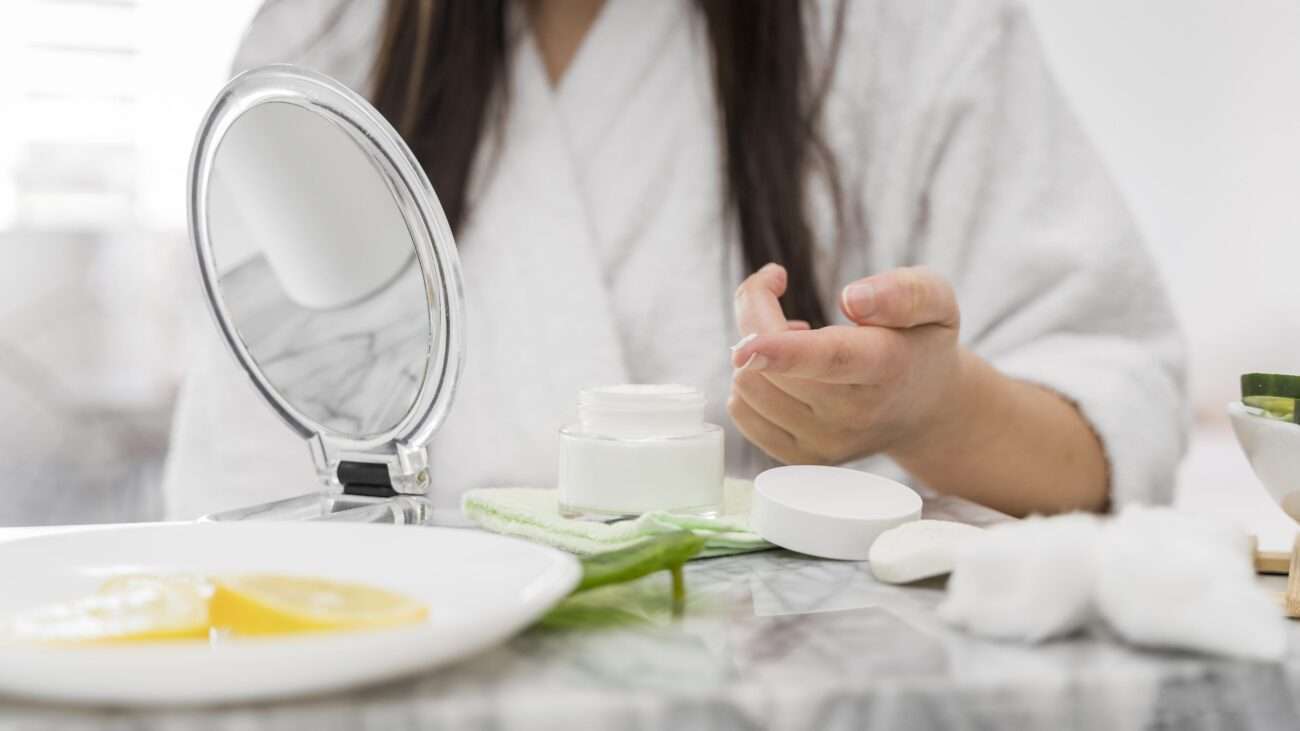
If you have sensitive skin, you know how difficult it can be to find skincare products that don’t irritate your skin. Sensitive skin is often prone to redness, itching, and inflammation, and it’s important to take extra care when selecting products and building a skincare routine. In this blog, we’ll go over some tips to help you care for your sensitive skin.
1. Use Gentle, Fragrance-Free Products

Sensitive skin reacts negatively to harsh chemicals and fragrances. When selecting skincare products, look for those that are labeled “gentle” or “fragrance-free.” Avoid products that contain alcohol, retinoids, or alpha-hydroxy acids (AHAs), as these can cause irritation.
2. Patch Test New Products

Before you start using a new skincare product, do a patch test. Apply a small amount of the product to a small area of your skin, such as behind your ear or on your inner arm. Wait 24-48 hours to see if any reaction occurs. If you experience any redness, itching, or swelling, avoid using the product.
3. Keep Your Skincare Routine Simple

For sensitive skin, less is often more. Stick to a simple skincare routine that includes a gentle cleanser, moisturizer, and sunscreen. Avoid using too many products at once, as this can overwhelm your skin and cause irritation.
4. Avoid Hot Water

Hot water can be harsh on sensitive skin, causing dryness and irritation. When washing your face, use lukewarm water instead of hot water. Avoid steam rooms and hot showers, as the heat can cause flushing and redness.
5. Be Gentle When Cleansing

When it comes to cleansing your face, being gentle is key, especially if you have sensitive skin. Cleansing helps remove dirt, oil, and makeup from your skin, but over-cleansing or using harsh products can strip your skin of its natural oils and cause irritation. When cleansing your face, be gentle. Use a gentle cleanser and avoid scrubbing your skin too hard. Pat your skin dry with a soft towel instead of rubbing it, as this can cause irritation.
6. Moisturize Daily

Moisturizing is essential for all skin types, but it’s especially important for sensitive skin. Look for a fragrance-free moisturizer that’s designed for sensitive skin. Apply it twice a day, once in the morning and once at night, to keep your skin hydrated and healthy.
7. Protect Your Skin From the Sun

Sun exposure can cause redness and irritation in sensitive skin. Protect your skin from the sun by wearing a wide-brimmed hat and using a sunscreen with an SPF of at least 30. Look for a sunscreen that’s designed for sensitive skin and avoid those that contain fragrances or harsh chemicals.
By following these tips, you can help keep your sensitive skin healthy and free from irritation. Remember, always consult with a dermatologist if you experience persistent redness, itching, or other symptoms of irritation.
FAQ
Q: What is sensitive skin?
A: Sensitive skin is a skin type that is easily irritated by certain products, environmental factors, or lifestyle habits. It can cause symptoms such as redness, itching, dryness, and flakiness.
Q: What products should I avoid if I have sensitive skin?
A: You should avoid products that contain harsh ingredients such as sulfates, alcohol, or fragrances. Look for products that are labeled “gentle,” “non-comedogenic,” or “pH-balanced.”
Q: Can I use natural or organic products for my sensitive skin?
A: Natural and organic products can be a good choice for sensitive skin because they are less likely to contain harsh chemicals and fragrances. However, it’s still important to do a patch test before using any new product to see how your skin reacts.
Q: How often should I cleanse my sensitive skin?
A: Cleansing your skin once or twice a day is enough for most people, including those with sensitive skin. Over-cleansing can strip your skin of its natural oils and cause irritation.
Q: What should I look for in a moisturizer for sensitive skin?
A: Look for a fragrance-free moisturizer that’s designed for sensitive skin. It should be gentle, non-greasy, and provide hydration without clogging pores.




